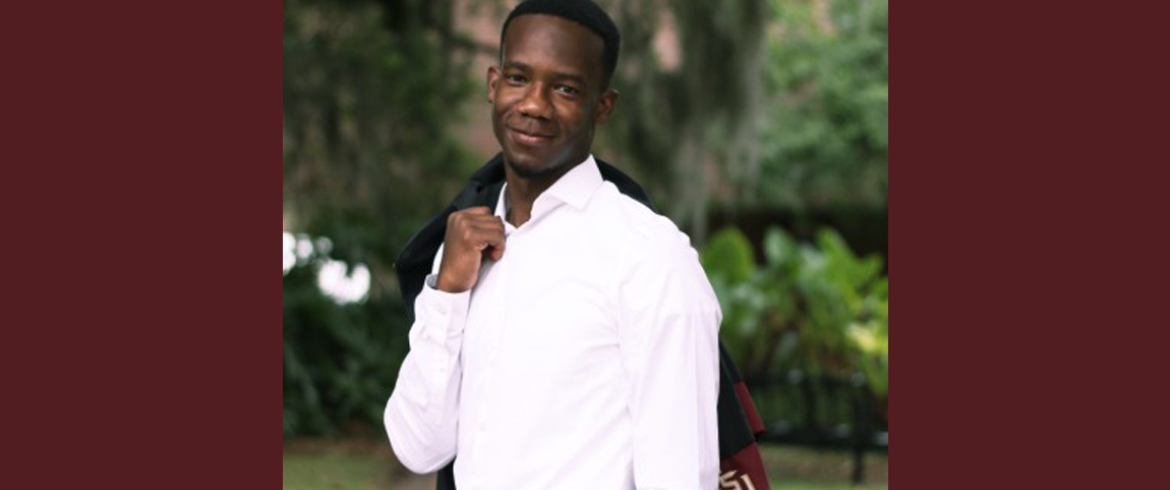
Jackson Bruce recently graduated with a master’s in electrical engineering from the FAMU-FSU College of Engineering and Florida State University. (Courtesy Bruce)
Jackson Bruce graduated with a master’s in electrical and computer engineering at Florida State University and the FAMU-FSU College of Engineering in the summer of 2023 and has big plans, starting with his new position at Northrup Grumman. Bruce describes his journey as a student and shares his dream for a more sustainable energy future.
What kind of research are you interested in?
The transportation industry wants to be more environmentally friendly and efficient by developing electric transport such as trains, ships and planes. But the power demands of these modes can’t be met using conventional technology without increasing the size, weight and volume of the power system. A solution to this issue is to implement superconductors and superconducting technology. That’s what my research is about.
What are superconductor cables used for?
Superconducting cables can power electric vehicles. They are used to power lighter and more efficient aircraft, for example, enabling many possibilities for sustainable travel with minimal environmental impacts.
What is the problem you are trying to solve?
Superconductor cables carry large amounts of current and transmit more power at zero resistance. But for zero resistance, the materials must be kept very cold (-321 °F). These extreme temperatures can create problems with conventional cable insulation, which can’t withstand those temperatures. If we understand how cryogenic epoxies behave as electrical insulation, we can help the technology move forward.
What got you interested in this research?
I first became interested in power systems and electronics after interning at the Center for Advanced Power Systems while getting my undergraduate degree. I worked in Dr. Sastry Pamidi and Dr. Peter Cheetham’s research group. The support I got there was amazing.
Tell me about CAPS.
CAPS is a multidisciplinary research center focusing on basic and applied research to advance power systems technology. I worked as a graduate research assistant there while pursuing my master’s degree. I experimented with and tested of high voltage wires and cables which led to my interest in the electrical properties of epoxies used to insulate superconductor cables.
What’s next?
I plan to work in the industry for a few years and earn my Professional Engineering (PE) license after taking the Fundamentals of Engineering Exam (FE).
Now that you have graduated, what is the best thing about the FAMU-FSU College of Engineering?
I enjoyed the idea of combining both universities’ engineering programs. I liked the idea of having a separate engineering campus with all the events and activities going on all the time. It is a great place to learn; when you weren’t studying, it was fun to hang out and relax.
RELATED ARTICLES
Engineering undergrad is taking a research-based approach to discovering her engineering passion
